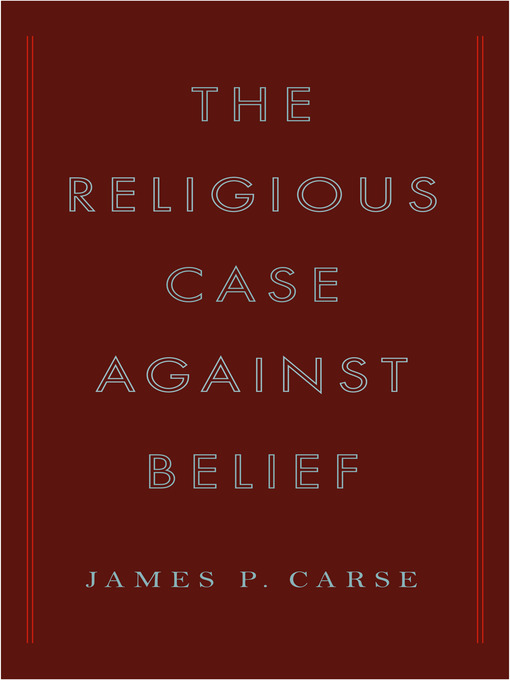
The Religious Case Against Belief
کتاب های مرتبط
- اطلاعات
- نقد و بررسی
- دیدگاه کاربران
نقد و بررسی

April 21, 2008
While it seems paradoxical to oppose religion to belief—religions, after all, are systems of beliefs; and belief in deities, ritual practices and scriptures combine to form religions—Carse convincingly demonstrates that belief and religion are too often falsely linked. Belief, he suggests, is a response to ignorance. Carse examines three kinds of ignorance: “ordinary” ignorance is simply lack of knowledge of some kind, such as the weather in Africa. “Willful” ignorance purposefully avoids clear and available knowledge, such as Creationists acting as if they know nothing of evolution. The tenacious beliefs that grow out of willful ignorance often result in bloody religious conflicts. Finally, what Carse calls “higher” ignorance accepts the fact that no matter how many truths we accumulate, our knowledge falls infinitely short of the truth. Individuals acting in higher ignorance can recognize the many truths that religious traditions can offer. Seen in Carse’s provocative way, religion transcends the narrow boundaries established by beliefs, and transforms our ways of thinking about the world.

June 1, 2008
Addressing what he sees as the ignorance of humans attacking one another on the basis of "religious" belief, Carse (religion, emeritus, NYU; "Finite and Infinite Games") here makes the case that belief and religion are in fact two different things. While belief systems offer a rational and consistent view of all things, religion, he argues, is full of inconsistency, paradox, and contradiction; like poetry, religion speaks of different things to people at various stages of their lives. Further, Carse writes, belief does not in and of itself make one religious, just as religiousness does not require belief. Using the stories of Galileo, Martin Luther, Jesus Christ, and others, he lays the groundwork for introducing three kinds of belief-based ignorance: ordinary, willful, and higher. Carse's comparison of poetry to religion as well as his description of the nature of belief make for an original, enjoyable read. In the end, he raises more questions than he answers, but (especially where religion is concerned) that may well be the point. For larger libraries and scholarly collections.Leo Kriz, West Des Moines Lib., IA
Copyright 2008 Library Journal, LLC Used with permission.

























دیدگاه کاربران